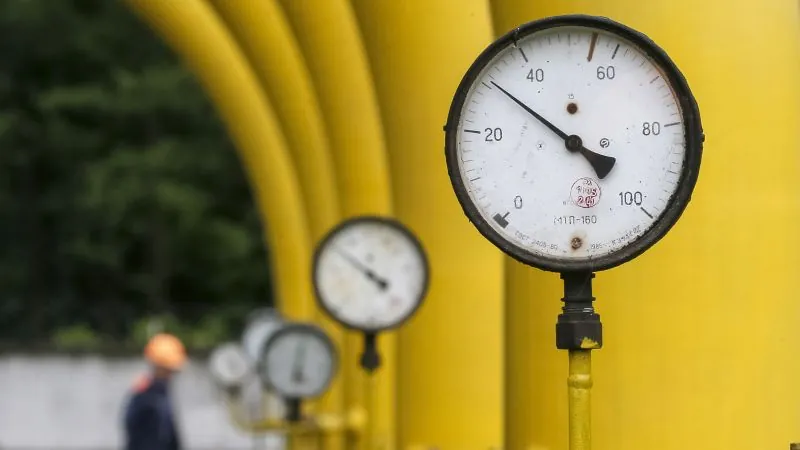
Ukraine Cuts Off Russian Gas Flow to Europe: What This Means for the Continent's Energy Future
2025-01-01
Author: Wei
Introduction
In a bold and historic move, Ukraine has officially ended its transport of Russian gas to Europe as the crucial transit agreement with Moscow expired on Wednesday. This decision, anticipated by many, comes amid the ongoing conflict with Russia and reflects Ukraine’s commitment to energy independence and national security.
Ukrainian Officials’ Confirmation
Ukrainian officials confirmed the termination, declaring it a significant milestone in the nation's struggle against Russian aggression. “We have stopped the transit of Russian gas. This is a historic event,” stated Ukraine’s energy ministry, emphasizing that preparations were made in advance to ensure a smooth cessation of the deal.
Financial Implications
The move represents a substantial loss for both Ukraine and Russia. Although Ukraine will forfeit approximately $800 million annually in transit fees, Gazprom—Russia's state-controlled gas giant—faces a staggering $5 billion reduction in gas sales. This shift is particularly significant considering that Gazprom reported a $6.9 billion loss last year, its first deficit in over two decades, primarily attributed to dwindling sales in Europe.
Impact on EU Gas Supply
Before the deal's expiration, the agreement accounted for about 5% of the European Union’s total gas imports, primarily benefitting Austria, Hungary, and Slovakia. With this agreement now lapsed, the only remaining pipeline delivering Russian gas to Europe is the Turkstream, which routes through Turkey to Bulgaria, Serbia, and Hungary.
Long-term Effects on Europe
The implications for Europe are profound. Before the full-scale invasion of Ukraine in 2022, Russia was the EU's foremost supplier of natural gas, providing over 40% of the bloc's needs. However, as of 2023, that figure has dramatically decreased to approximately 8%. To compensate for this shortfall, Europe has been heavily investing in liquefied natural gas (LNG) from the United States and other countries, coupled with increased imports from Norway. Despite some ongoing purchases of Russian LNG for immediate needs, the European Union aims to fully sever ties with Russian fossil fuels by 2027.
Expert Predictions
Experts believe that nations previously reliant on Russian gas through the Ukraine transit deal will not face immediate energy shortages, as they are positioned to enhance their LNG imports or sourcing from other European suppliers. Nonetheless, the expiry of this deal poses challenges for Europe’s energy security. Analysts warn that the end of Russian gas transit through Ukraine could complicate efforts to replenish gas storage ahead of the next winter season. Energy prices, which dipped from their 2022 record highs, are projected to stabilize or even rise again in 2025 due to market adjustments following this significant supply chain disruption.
Conclusion
Are we witnessing the dawn of a new energy landscape in Europe? As the continent turns its back on Russian gas, the repercussions—political, economic, and environmental—will undoubtedly reshape the future of energy consumption and geopolitical alliances in the region. Stay tuned as these developments unfold!



 Brasil (PT)
Brasil (PT)
 Canada (EN)
Canada (EN)
 Chile (ES)
Chile (ES)
 España (ES)
España (ES)
 France (FR)
France (FR)
 Hong Kong (EN)
Hong Kong (EN)
 Italia (IT)
Italia (IT)
 日本 (JA)
日本 (JA)
 Magyarország (HU)
Magyarország (HU)
 Norge (NO)
Norge (NO)
 Polska (PL)
Polska (PL)
 Schweiz (DE)
Schweiz (DE)
 Singapore (EN)
Singapore (EN)
 Sverige (SV)
Sverige (SV)
 Suomi (FI)
Suomi (FI)
 Türkiye (TR)
Türkiye (TR)